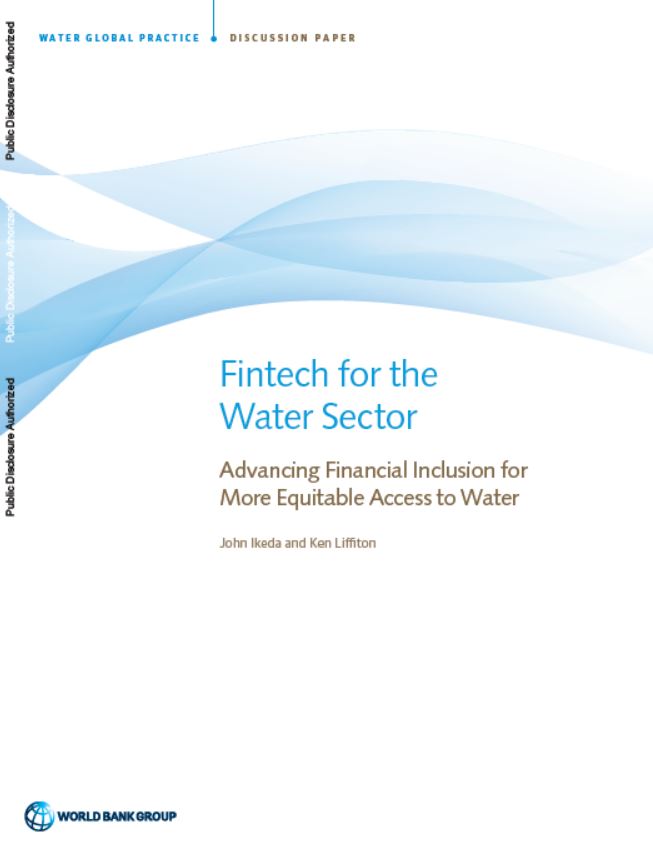Fintech for the Water Sector : Advancing Financial Inclusion for More Equitable Access to Water
 |
rapport coll. Water Global Practice Mar 2019 ; 53 pages
Aut.
Ed. World Bank - Washington
Téléchargeable sous format: PdF
Téléchargeable chez l'éditeur
Site internet: https://openknowledge.worldbank.org/handle/10986/31417
Abstract:
For many low-income households in the developing world, incomes are highly variable and uncertain. High up-front costs combined with irregular incomes result in unequal access to water, sanitation, and irrigation. Households typically can, and should, cover the costs of accessing water resources, but they cannot do this without help. Financial inclusion can help households access water resources. Financial inclusion focuses on ensuring everyone has access to useful and affordable financial products and services, including transactions, payments, savings, credit, and insurance. The emerging field of financial technology (fintech) can help address barriers to financial inclusion in the water sector while potentially reducing or eliminating the need for subsidy. Fintech solutions already address some of the needs of developing-nation households—applications include payments and mobile money, pay-as-you-go (PAYG) models, insurance technology (insurtech), and virtual banks. This paper explores how fintech can support expansion of market-based solutions for water, sanitation, and irrigation, identifying several use cases where fintech is already being used to address financial inclusion and access to water. In addition to ways that fintech can help households access water supply and sanitation services, the paper also examines how fintech can help water utilities serve low-income customers more effectively and assist small-scale service providers in growing their businesses.
Mots clefs: |
eau potable (CI) (DT) (OP) (ope) , financement (CI) (DT) (OP) (ope) |
Editeur/Diffuseur: |
|
World Bank - Washington - Etats Unis |
En cas de lien brisé, nous le mentionner à communication@pseau.org